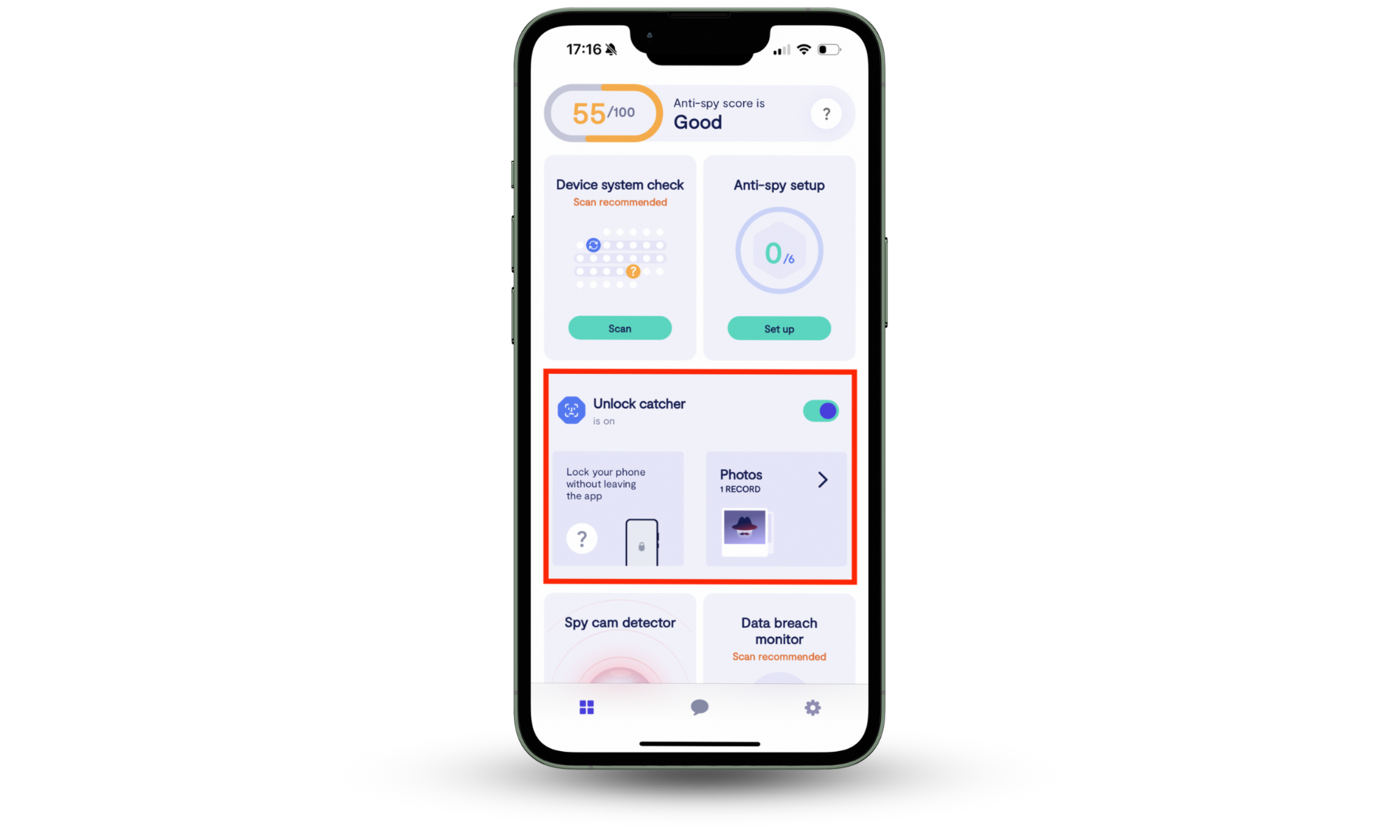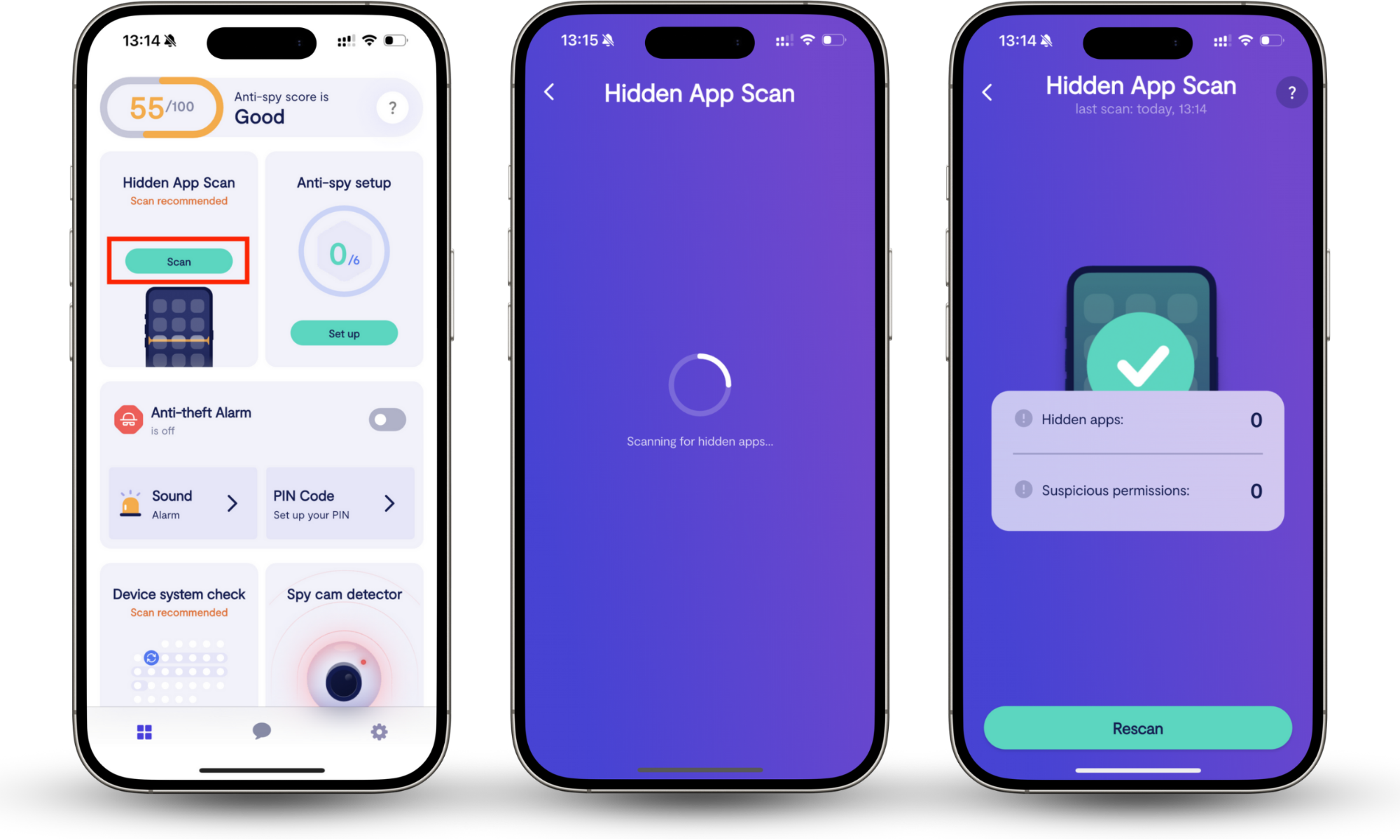Table of contents
- What makes friend toxic
- Signs of toxic friend
- 1. Constant criticism and negativity
- 2. Lack of empathy and support
- 3. Manipulation, guilt‑tripping, and gaslighting
- 4. One‑sided effort and imbalance
- 5. Frequent drama, untrustworthiness, betrayal
- 6. Disrespect for boundaries
- 7. Isolation from others and keeping you from other relationships
- 8. Competition, spotlight‑stealing, and minimizing your achievements
- Impact of toxic friendships
- Can toxic friendship be fixed
- How to end toxic friendship
- Conclusion
What makes friend toxic
A friend turns toxic when their behavior starts to unsettle you in ways you cannot easily name at first. It can show up in small patterns that keep gathering weight. A toxic friend might betray you, rewrite past conversations, or gaslight you.
They'd definitely ignore your boundaries or any rules of engagement you set. A toxic friend will also use emotional leverage to get their way. This is not an uncommon experience. The Mental Health Association of East Tennessee found that 84% of women and 75% of men report that they’ve been in a toxic friendship before.
Once a toxic friend betrays your trust, you start feeling pretty unsafe around them. You grow restless, your emotional well-being tanks, and the relationship no longer feels like a place where you can breathe.
Something that once felt easy becomes a place where you watch your reactions and shrink yourself to keep the peace. When a pattern like this settles in, the friendship no longer supports you. At this stage, learning how to deal with toxic friends and, if necessary, ending the friendship should be your priority.
Signs of toxic friend
Common signs of a toxic friend include constant criticism, jealousy, manipulation, unhealthy competition, and a general pattern of negative behavior that starts to affect your confidence. You will also notice rising tension after simple conversations. APA reporting in 2023 noted that conflict-filled friendships are linked to higher anxiety levels and changes in health, which shows how these signs can influence your well-being.
These signs often appear in different ways depending on the friend and the history you share. The next sections break each one down more clearly so you can see how they show up in everyday behavior.
1. Constant criticism and negativity
A toxic friend often frames their comments in ways that chip at your confidence. They might claim they are being honest, yet their words land heavily and start to affect your sense of worth. Psychology researchers refer to this as ‘emotional contagion,’ where repeated negative feelings\ input from someone close can shape your mood without you noticing. You may even begin to avoid sharing parts of your life to escape another cutting remark.
How constant criticism and negativity looks:
- They correct you publicly even when it is unnecessary.
- They make jokes about your appearance or choices, then say you are too sensitive.
- They praise others freely but go quiet when you achieve something.
- They highlight your flaws more often than they acknowledge your growth.
- They respond to your ideas with doubt before giving them any thought.
2. Lack of empathy and support
Some friends only show concern when it serves their interests. Additionally, these friends are often absent when you need help. And even if they are, they’d be most unhelpful. You try to explain something difficult or confusing, yet they rush to talk about themselves or dismiss what you feel. This makes it harder to deal with everyday stress, because the friend you rely on provides no comfort. Oftentimes, many people reach for therapy when this emotional distance becomes too much.
How lack of empathy and support looks:
- You share a worry, and they change the subject within seconds.
- They offer advice that ignores your feelings or the context entirely.
- They act irritated when you need support, but expect full attention when they struggle.
- They minimise your pain and compare it to something they went through.
- They disappear during your difficult moments but return when things improve.
3. Manipulation, guilt‑tripping, and gaslighting
Some friends have a way of bending situations so you end up feeling responsible for things that were never yours to carry. You try to question what happened, and they redirect it in a way that leaves you doubting your perception of events.
They’d also insist you misheard them or that your feelings are exaggerated. Everything feels surreal and dubious. That slow confusion is often the clearest sign that something is not right.
And if you don’t find a way to leave that situation, you might find yourself trapped in an unhealthy cycle similar to a trauma-bonded relationship.
How manipulation, guilt‑tripping, and gaslighting manifest in everyday interactions:
- They retell a story in a way that makes you wonder if you remembered it wrong.
- You ask for something small and they guilt you for “making a big deal.”
- They bring up a private moment during a disagreement to unsettle you.
- You leave discussions feeling guilty, even when you were respectful.
- They twist your calm reactions into proof that you “do not care enough.”
4. One‑sided effort and imbalance
There are friendships where you feel the shift long before you admit it to yourself. You notice you are the one checking in, making the plans, carrying the conversations. At first, you let them have excuses. Busy week. Tired. Maybe distracted. Then weeks pass and the pattern does not change. You start adjusting yourself downward so the imbalance feels less obvious, even though you know the friendship only moves when you push it.
How one‑sided effort looks:
- They reply only when it suits them and ignore the rest.
- You ask to meet, and the answer is always “another time.”
- They show enthusiasm when they need something, but then turn distant.
- They listen briefly, then redirect the conversation to their own life.
- You realise you cannot remember the last time they reached out first.
5. Frequent drama, untrustworthiness, betrayal
One day, you’re having a conversation with a friend, and the next day, you’re hearing your private story from someone who should not know it. Toxic friends are usually two-faced.
Their reactions shift depending on who is listening, and you stop trusting which version of them you will meet.
It gets worse when you start noticing that they’re probably following your online activity, too. Maybe you’ve recently noticed a random account placing negative comments on your Facebook posts. Maybe that account is saying things only your friend would know.
If you find yourself wondering, do people you may know on Facebook stalk you? The answer is often yes, and it could be your toxic friend looking for the next thing to gloat over.
What frequent drama, untrustworthiness, and betrayal can look like in everyday moments:
- They retell your personal stories without asking.
- They share information selectively to stir tension.
- Their apologies feel scripted and do not lead to change.
- Their version of events changes from one group to the next.
- You learn more about their loyalty from others than from them.
6. Disrespect for boundaries
Some friends push past limits in ways that feel small at first. A comment you asked them to stop making. A phone call at a time you said you needed quiet. Then it slips into deeper parts of your life, and you realise you have been adjusting your behaviour to keep the peace.
What boundary crossing looks like:
- They move through your things as if they belong to them.
- They dismiss your need for rest or privacy.
- They treat your boundaries as something to bend.
- They question your no until you feel worn down.
- They expect openness while offering very little of it.
7. Isolation from others and keeping you from other relationships
Some friends tighten their hold by loosening your ties to everyone else. It does not always happen through clear demands. Sometimes it begins quietly. A small remark about someone you care about. A raised eyebrow when you mention plans with another friend. Over time, you notice that you hesitate before sharing your social life with them. You start shrinking your world without fully understanding why, only that you do not want to encounter their jealous outbursts.
What isolation can look like:
- They criticise the people you spend time with until you feel unsure about those relationships. They make you feel guilty for wanting a life outside the friendship.
- They ask controlling questions about who you talk to and why.
- They act offended when you make plans that do not include them.
- They create subtle rivalry with your other connections, so you feel torn.
8. Competition, spotlight‑stealing, and minimizing your achievements
Toxic friends hate when something good happens to you. You share news hoping they’d congratulate you, but they don’t. They interrupt with their own story. They redirect the attention. They lessen what you achieved. After a while, you start guarding your good moments, because sharing them feels risky. You should not have to measure your joy before offering it to someone who claims to care.
What competition and spotlight-grabbing can look like in everyday moments:
- You tell them something meaningful, and they immediately talk about themselves.
- They act unimpressed when you reach a goal that mattered to you.
- They mention someone else who did it better or faster.
- They interrupt celebrations by shifting the focus back to their life.
- They respond to your progress with quiet irritation instead of pride.
Impact of toxic friendships
Toxic friendships can affect your emotional stability and create lasting stress. You may feel anxious before seeing the person or hurt after conversations with them. Research from the American Psychological Association shows that people with no friends or low-quality friendships are twice as likely to die early, a risk greater than smoking twenty cigarettes a day.
The stat above reflects how deeply relationships influence our well-being. When these patterns begin shaping your days, it helps to know if a friend is toxic and to protect your health.
Other impacts of a toxic friend include:
- Emotional overload: You spend more time managing your reactions and theirs, which leaves you exhausted.
- Self-doubt: You question your tone and choices because their responses ridicule and unsettle you.
- Stress reactions: Your body stays alert in their presence because they might lash out at you at any moment.
- Pulling inward: You talk to fewer people because the friendship drains your attention.
- Unsteady sense of worth: You feel smaller and undeserving of stress-free relationships.
- Discomfort in the body: You notice stomach tension or headaches tied to the time you spend with them.
- Fear of errors: You rehearse lines in your head to avoid upsetting them.
- Paranoia from being watched: You become cautious because their interest in your posts or online activities starts to resemble behavior associated with cyberstalking.
That feeling can extend beyond posts or messages. Sometimes the worry is that this toxic friend may try to open your phone when you are not there to stop them. Toxic friends can be bold like that.
Clario Anti Spy’s Unlock catcher can help you know for sure if a toxic friend has been trying to get into your phone. You can set it up to alert you to any break-ins and take discreet pictures of the intruder.
Follow these steps to set up Clario Anti Spy’s Unlock catcher:
- Download Clario Anti Spy and create an account.
- Tap the Unlock catcher toggle on your dashboard.
- Turn it on to save a photo each time someone tries to unlock your phone.

Can toxic friendship be fixed
A toxic friendship can be fixed, but only when both friends truly want to work it out. You need two people who can sit down to discuss what has been going wrong and talk about it without defensiveness. Of course, the conversation will be uncomfortable at first. Tempers may rise. But there has to be a willingness to want to reconcile (on both ends).
You will also need to agree on and keep some boundaries. You might also require outside assistance. A counselor or therapist can help you understand what each of you needs for the friendship to feel healthy again.
Please note that reconciliation won’t work if only one friend is putting in the effort. You can be patient, you can explain yourself, you can hope, and the friendship still circles back to the same toxic place. When that invariably happens, it's not the time to learn to deal with a toxic friend or try to fix it. It is time to leave. Let it go.
How to end toxic friendship
To end a toxic friendship, you can either quit cold turkey, reduce contact slowly, or speak to the friend directly and explain that the friendship is no longer healthy for you. Any of these methods can help you break the pattern, protect your health, and extricate yourself from the emotional strain of your bad friendship.
Steps you can take when ending a toxic friendship:
- Be clear. Write a few lines and prep for your encounter with this toxic friend. Journaling helps you say what matters and what can stay unsaid. It also helps you stay on track, in case they try to gaslight you. Keep it plain. You are speaking from your experience, not defending it.
- Pick a safe setting. Some people talk in person. Others text because it’s easier that way. Choose whatever gives you the most control over the moment. And if you decide to cut them off in person, pick a location that’s safe for you. Do not take any chances.
- State your boundary without softening it. You can say you need distance, time apart, or that you want the friendship to end. You do not need a long story. One or two sentences can be enough.
- Step back and hold that boundary. Once the boundary is laid out, keep to it. The friend may ask for another conversation or try to go back to their old patterns. Don’t fall for it. You are allowed to keep your distance.
- Limit communication afterward. Reduce access if you need peace. Muting, blocking, or turning off notifications are tools, not dramatic gestures. Quiet helps your emotions settle.
- Don’t be afraid to ask for help. Leaving a draining connection can feel heavier than expected. The relief might not be instantaneous, and you may feel yourself slipping into a dark place. Talk to someone you trust. A friend, a sibling, a therapist.
- Here are some resources and helplines to reach out to in crisis:
- 988 Suicide and Crisis Lifeline: You can speak or text anytime for help with emotional distress or overwhelming feelings.
- NAMI HelpLine: Offers guidance, information, and support for mental health concerns.
- SAMHSA National Helpline (1-800-662-4357): Connects you with trained counselors who can help with stress, anxiety, or substance abuse concerns.
- Warmlines Directory: Connect with trained peers who understand emotional strain and offer a listening ear when you feel alone.
- Protect your space. Be cautious after a friendship breakup with a toxic friend. They might not take it well. Some might even decide to stalk you. If you catch yourself wondering, why is my ex-friend stalking me, it might mean they are, and you should protect yourself ASAP.
You can call 911 or go to the police when you suspect that your friend is stalking you. Stalking can involve physically following you around and showing up in private places, or it can occur through a secret spy app on your phone.
Clario Anti Spy can help with the latter. Clario Anti Spy’s Hidden app scan can detect hidden spy apps disguised as legitimate software. These apps usually have permissions that are way beyond it's regular scope. For example, a radio app asking for camera permissions.
Clario Anti Spy's Hidden app scan also looks for loopholes and access points that a former friend might try to use to spy on your device, and shows you how to close them.
How to check your device with Clario Anti Spy’s Hidden app scan:
- Download Clario Anti Spy, and create an account.
- Tap Hidden app scan on the dashboard.
- The feature will scan your phone for spyware or hidden tracking apps.
- Follow the on-screen prompts to remove any threats it finds.

Conclusion
Toxic friendships take more from you than they give, and noticing that is already a step toward protecting yourself. Leaving that relationship might be the best option for you. Do not blame yourself for it.
If you ever feel overwhelmed or unsure about what to do next, please reach out to the support lines mentioned earlier in the article. They can help you make sense of your feelings with someone trained to listen and understand.
And if you worry that the toxic friend is stalking through your own device, you can protect yourself there, too. Clario Anti Spy’s Hidden app scan helps you uncover any hidden tools they might have placed on your phone. And the Unlock catcher lets you know when someone tries to access your device when you’re not around.
You deserve friendships that sit softly in your life. Ending the wrong one simply makes room for better people later.


